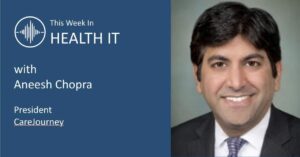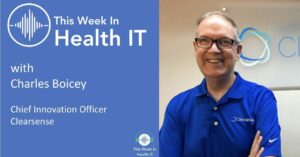



March 26, 2025
The Senate has confirmed Marty Makary as the FDA commissioner and Jay Bhattacharya as the NIH director, with votes largely reflecting party lines. Bhattacharya was approved by a 53-47 vote with Republican support, while Makary received a 56-44 vote, including three Democratic votes. Both leaders highlighted their commitment to health reform during confirmation hearings, aligning with Health Secretary Robert F. Kennedy's vision. They are entering their roles amid significant challenges, including workforce cuts and low morale at their respective agencies, with the FDA having recently laid off and rehired many staff, while the NIH faces concerns over potential layoffs and grant disruptions. Additionally, both nominees addressed scrutiny regarding their vaccine views, with Makary hesitating to endorse vaccines for recent outbreaks and Bhattacharya recognizing their significance while allowing for skepticism.
Senate Confirms Makary and Bhattacharya to Lead FDA and NIH Amid Challenges Stat News
March 26, 2025
Democrats on the Senate Intelligence Committee criticized the Trump administration's handling of classified information during a recent hearing, following revelations about military strategy discussions in a Signal group chat that included non-official personnel. Ranking member Mark Warner (D-Va.) pointed to this incident as an example of "sloppy" governance under Trump. Notably, CIA Director John Ratcliffe acknowledged his involvement in the chat while defending its appropriateness for work discussions, despite concerns over the potential exposure of sensitive information, including the identity of an active intelligence officer. Senator Michael Bennet (D-Colo.) condemned Ratcliffe's actions, highlighting the risks of such communications—especially when officials are in sensitive locations like Moscow.
Senate Democrats Slam Trump Officials for Misuse of Signal in Military Chat Politico
March 26, 2025
The integration of electronic health records (EHR) and interoperability in health information systems are essential for enhancing patient experiences in healthcare. Historically, patients have dealt with difficulties stemming from non-adopted technologies, including the need to carry physical medical records, which can lead to incomplete histories and unnecessary tests. Matthew Eisenberg, MD, Associate CMIO at Stanford Health Care, emphasizes that limited access to patient information can impede care quality. Siloed systems exacerbate challenges for healthcare organizations facing workforce shortages and burnout, as highlighted by a survey noting that inefficiencies and lack of automation frustrate users. Streamlining workflows through improved integration can enhance communication, coordination, and financial efficiency, ultimately benefiting both providers and patients.
"Enhancing Patient Care Through EHR Integration and System Interoperability" HealthTech Magazine
March 26, 2025
In this article, David Muntz, Principal at StarBridge Advisors, emphasizes the necessity for healthcare IT leaders to cultivate resilience and adaptability amid constant industry challenges. He advocates for embracing change proactively, fostering a culture of flexibility within IT teams, and maintaining transparent communication to build trust among stakeholders. Muntz also highlights the importance of balancing robust cybersecurity measures with innovation, investing in resilient infrastructure, and aligning decisions with holistic frameworks like the Quintuple Aim to enhance patient outcomes and operational efficiency.
Navigating Uncertainty: Empowering Healthcare IT Leaders for Success Starbridge Advisors


© Copyright 2024 Health Lyrics All rights reserved